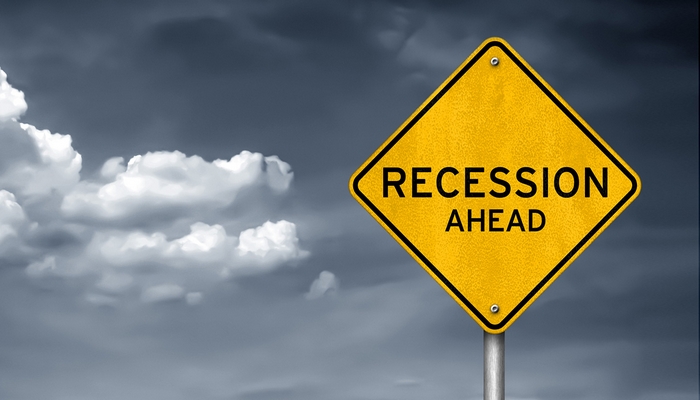Nigeria steadily matching towards COVID-19-induced recession as GDP contracted 6.10% Q2

Nigeria steadily matching towards COVID-19-induced recession as GDP contracted 6.10% Q2
By Wole Tokede
There are concerns that with the contraction of 6.10 per cent in GDP in the second quarter of 2020, the Nigerian economy is steadily matching towards another recession in four years, to thanks to COVID-19 pandemic.
A country’s economy goes into recession when its Gross Domestic Product (GDP) contracts for two consecutive quarters, meaning that at the end of third quarter, Nigeria may be wallowing the waters of economic recession once again. In August 2016, the Nigerian economy effectively slid into recession.
The statistics bureau said at the time that the second quarter 2016 Gross Domestic Product (GDP) declined by 2.06 per cent.
Annual inflation also rose to 17.1 per cent in July from 16.5 per cent in June 2016, and food inflation rose to 15.8 per cent from 15.3.
But by the second quarter of 2017, the economy exited recession following significant rise in the prices of oil in the global oil market.
Even before the advent of COVID-19 in December 2019, the Monetary Policy Committee (MPC) of the Central Bank of Nigeria (CBN) had warned in 2018 that Nigeria’s economy risked slipping into another recession if there was no synergy between monetary and fiscal policies to ensure macroeconomic stability.
The committee raised concerns over challenges to growth including rising inflation and pressure on external reserves as a result of capital flow reversals.
It would be recalled that in May, Nigeria’s Finance Minister, Mrs Zainab Ahmed, said that an assessment by the Nigeria Bureau of Statistics indicates that Nigeria’s economy will go into yet another recession at an average of -4.4 per cent.
“The National Bureau of Statistics (NBS) has made an assessment. So, it is the NBS assessment that Nigeria will go into a recession measuring at an average of -4.4%,” she noted.
“But with the work that the Economic Accessibility Committee is doing bringing stimulus packages, we believe that we can reduce the impact of that recession.
“And if we applied all that have been proposed and we are able to implement it we may end up with a recession that is -0.4 per cent. In any case, we will go into recession but what we are trying to do is to make sure that it is shallow so that we will quickly come out of it come 2021,” Ahmed said.
The advent of COVID-19 has made a mess of whatever plans the nation might have had to prevent going into another recession.
Giving the details of the Nigerian Gross Domestic Product Report for Q2 2020, NBS showed that the decline was due to a contraction in domestic and international economic activity during the quarter (April to June 2020).
The decline represents the biggest contraction of the nation’s economy in at least a decade.
Countries of the world had shut down their economies following the outbreak of coronavirus.
Nigeria implemented a nationwide shutdown in March, amid efforts to contain the spread of the COVID-19 pandemic.
The NBS noted on Monday that domestic efforts ranged from initial restrictions of human and vehicular movement implemented in only a few states to a nationwide curfew, bans on domestic and international travel, closure of schools and markets etc., affecting both local and international trade.
These efforts, led by both the federal and state governments, evolved over the course of the quarter and persisted throughout, it noted.
The decline ends a three-year trend of low but positive real growth rates recorded since the last recession in 2016, the report showed.
Details of the report showed that Oil GDP contracted by -6.63 per cent from 5.06 per cent in the first quarter and 5.15 per cent in the second of 2019.
Similarly, non-oil GDP contracted by -6.05 per cent from 1.55 per cent in the first quarter of 2020 and 1.64 per cent in the second quarter of 2019.
“The decline was largely attributable to significantly lower levels of both domestic and international economic activity during the quarter, which resulted from nationwide shutdown efforts aimed at containing the COVID-19 pandemic,” the NBS said on Monday.
Nigeria recorded its first case of the coronavirus in February. The nation, thereafter, effected nationwide lockdowns that slowed economic and industrial activities.
The nation, however, has begun re-opening its economy in phases.
For instance, the ban placed on local flights has been lifted and international flights are scheduled to resume on August 29 and other measures to reopen the economy without compromised on the health of the populace are being carefully considered.
With these efforts, there is conscious optimism that Nigeria may escape another recession so soon.






